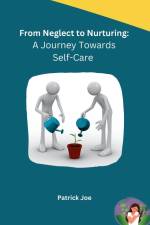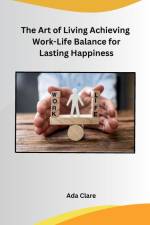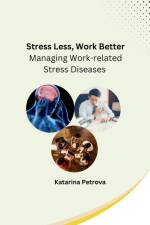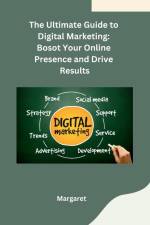von Fanny Crosby
32,00 €
Understanding Personal DevelopmentIn our pursuit of a happy life, personal development plays a crucial role. It is a lifelong journey of self-discovery, growth, and improvement that empowers us to live a more fulfilling and joyful existence. Personal development is not a one-size-fits-all concept; it is a deeply personal and individual process that varies for each person. In this chapter, we will dive into the foundations of personal development and how it can transform your life.At its core, personal development involves gaining self-awareness and understanding oneself on a deeper level. It requires introspection and reflection to identify our strengths, weaknesses, values, and beliefs. By becoming aware of our thoughts, emotions, and behaviors, we can make conscious choices that align with our true selves and lead to a happier life.Personal development also encompasses setting and achieving meaningful goals. It involves creating a clear vision of what we want in life and taking intentional steps to make it a reality. By setting specific, measurable, attainable, relevant, and time-bound (SMART) goals, we can stay focused and motivated on our journey towards personal growth.Furthermore, personal development involves acquiring new knowledge, skills, and habits that contribute to our overall well-being. It encourages continuous learning and self-improvement in various areas of our lives, such as relationships, career, health, and spirituality. By expanding our capabilities and broadening our perspectives, we can unlock new opportunities and experience greater fulfillment.It is essential to note that personal development is not a linear process. It is filled with ups and downs, setbacks, and challenges. However, these obstacles serve as opportunities for growth and resilience. By embracing failure as a learning experience and maintaining a positive mindset, we can overcome obstacles and keep moving forward on our personal development journey.Ultimately, personal development is about embracing change and becoming the best version of ourselves. It is about taking responsibility for our lives, making conscious choices, and continuously evolving to create a joyful and purposeful existence.In the following chapters of "Liberate Your Life: Personal Development Strategies for a Joyful Existence," we will explore various tools and techniques to enhance personal development. From mindfulness practices to effective goal-setting strategies, this book will provide you with practical guidance and inspiration to embark on your personal development journey. Remember, personal development is a lifelong commitment, and with dedication and perseverance, you can transform your life and experience the happiness you deserve






























